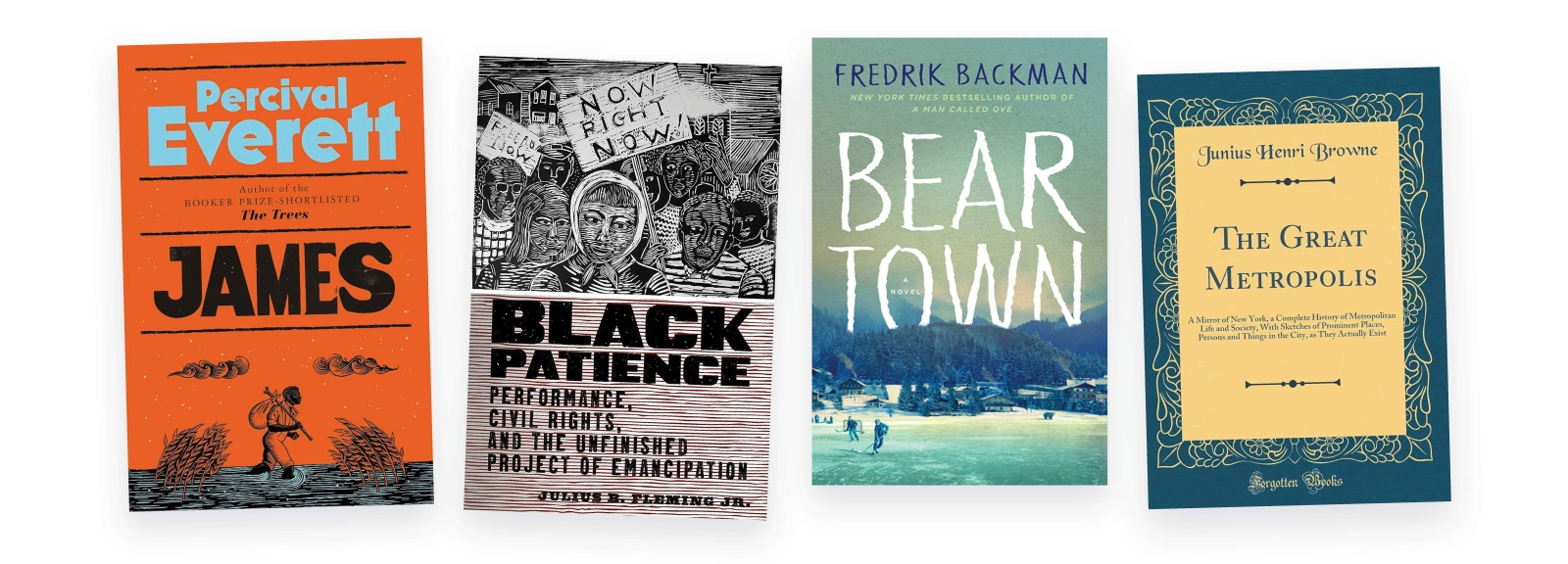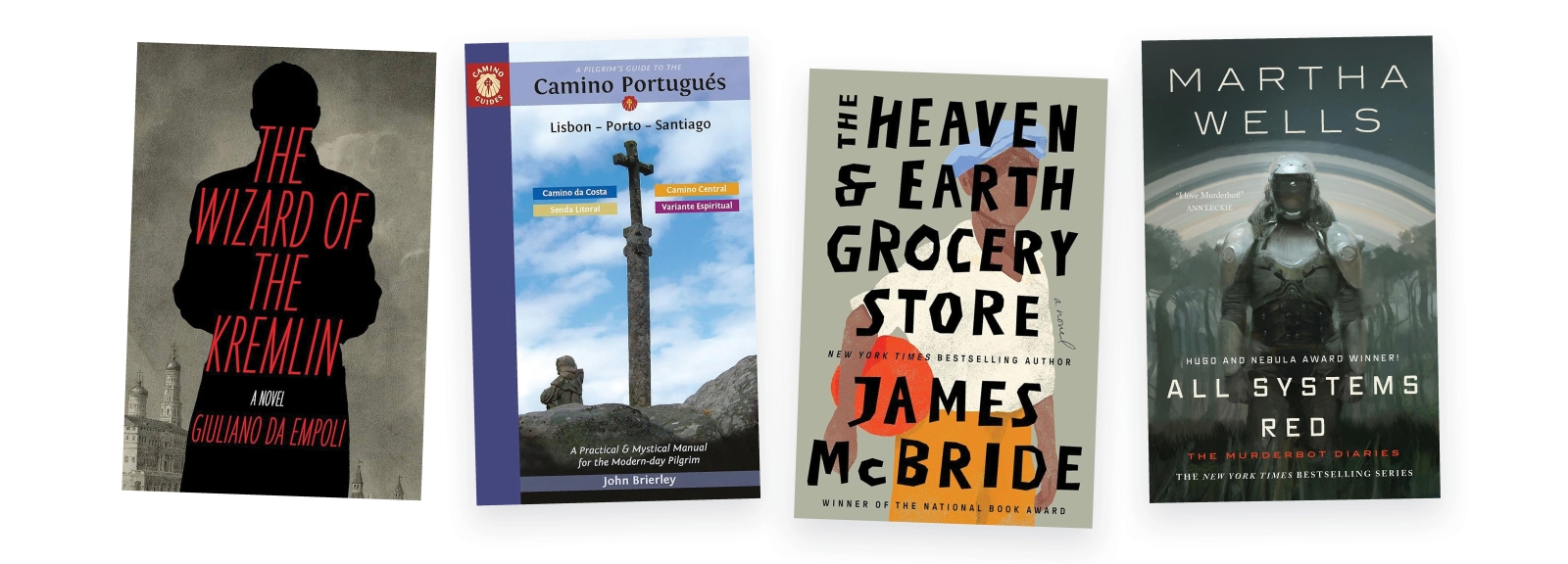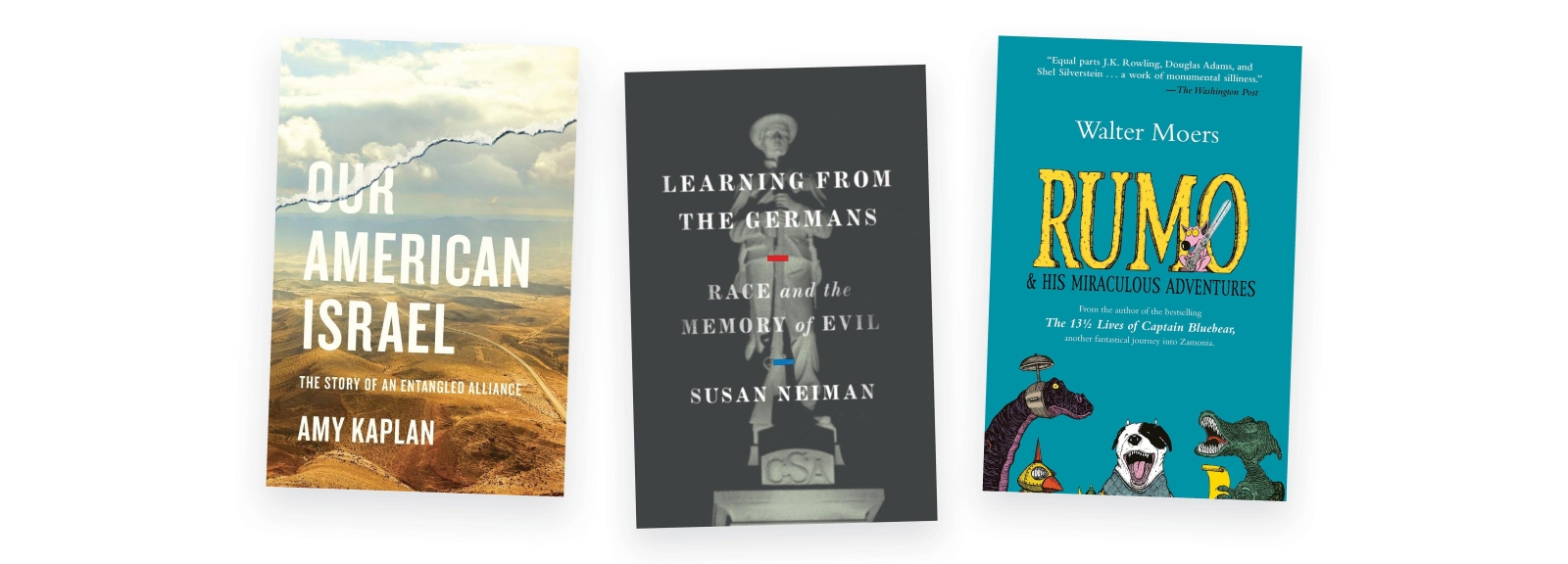Summer Reading Picks
Eleven faculty and lecturers from Penn Arts & Sciences share the books they’re reading now that the academic year has wound down.
Summertime holds great promise—of slower days and moments to catch up. Often that includes the hope of savoring a good book. In that vein, Omnia asked faculty and lecturers from Penn Arts & Sciences to share which volumes and manuscripts, paperbacks and hard covers make their summer reading wish lists.

James, by Percival Everett
The book at the top of my list is Percival Everett’s James, which is a rewriting of Huckleberry Finn’s time on the raft with (Mark Twain’s name) Ni**er Jim, from the point of view of a man whose name is James; he has an inner life whites have no idea that he possesses. Everett’s book is proof that American literature—including the classics—works best and is best thought of in terms of plasticity and reimagining rather than something rigid or sedentary. We’re not well-served when canonical literature is a matter of sacred cows rather than paradigm shifts. – Herman Beavers, Julie Beren Platt and Marc E. Platt President’s Distinguished Professor, Departments of English and Africana Studies
Black Patience: Performance, Civil Rights, and the Unfinished Project of Emancipation, by Julius B. Fleming, Jr.
This book is keeping me company as I revise a libretto I’m writing about the Fisk Jubilee Singers, past and present. Fleming shows how “Black patience” has been enforced and weaponized by U.S. laws and culture, and how artists including Lorraine Hansberry, James Baldwin, Alice Childress, Douglas Turner Ward, Duke Ellington, and Oscar Brown, Jr., “decolonized time” for a people demanding freedom now. – Lorene Cary, Senior Lecturer, Department of English
Beartown, by Fredrik Backman
I’m reading Beartown by Fredrik Backman because I just love this author and his view on life. I might attempt to read everything he’s written—I’ve already read A Man Called Ove! – Angela Duckworth, Rosa Lee and Egbert Chang Professor, Department of Psychology, and Faculty Co-Director, Behavior Change for Good Initiative
The Great Metropolis: A Mirror of New York, by Junius Henri Browne
This summer I’m planning to read, among many other primary documents of 19th-century New York, this volume from 1868. It contains “sketches” of New York life that I suspect will be helpful to me for the novel I’m working on now, which is set partly in New York City in 1873. The volume contains chapters like “The Roughs,” “The Bohemians,” “The Adventuresses,” and “The Gambling Houses.” Needless to say, I can’t wait! – Jennifer Egan, Novelist and Artist in Residence, Department of English

The Wizard of the Kremlin, by Giuliano da Empoli, translated by Willard Wood
This is one of the books I’ll be reading this summer, a fictionalized and somewhat surreal account of Vladimir Putin’s propaganda machine. It was a major bestseller in France. Though the novel’s language is French and its setting Russia, it has obvious relevance to current American politics. Putin’s mastery in the use of media to distract and disorient the public has made him a figure of envy and emulation on the Trumpian right. My wife, who reads a lot of contemporary French fiction, strongly recommends the novel in the original French, but I’ll read the English translation by Willard Wood, which is said to be excellent. – James English, John Welsh Centennial Professor, Department of English
Camino Portugués, by John Brierley
I’m still in the midst of reviewing academic papers, writing recommendation letters and tenure letters, etc., while also trying to do some research. As a result, the only book I’m currently reading for leisure is a travel guide for the Portuguese coastal branch of the Camino de Santiago, which we plan to walk in a month. It’s a pilgrim path that leads to the shrine of St. James in the cathedral of Santiago de Compostela in Galicia in northwestern Spain. It is a self-finding journey for many. We walked one part in 2019—about eight days—from Porto to the Portuguese-Spanish border town of Caminha, with the plan of finishing the walk from Caminha to Santiago de Compostela the following summer. As we all know, travel was limited in 2020. Now the second part is finally going to happen. I cannot recommend this experience highly enough. – Julia Hartmann, Fay R. and Eugene L. Langberg Professor, Department of Mathematics
The Heaven & Earth Grocery Store, by James McBride
I go to the beach for a week in the summer and I like to take novels with me. I get a lot of ideas for what to read from the New York Times Book Review and I will also read anything Ann Patchett, Curtis Sittenfeld, Ann Napolitano, or Jhumpa Lahiri have recently published. This summer I’ll take Good Material by Dolly Alderton, This Strange Eventful History by Claire Messud, You Are Here by David Nicholls, and of course, The Heaven & Earth Grocery Store by James McBride. I like the idea that McBride’s book is a little bit of a genre mash-up (murder mystery, historical fiction), plus two of the protagonists are Romanian Jews (my people), and the plot involves the child welfare system (a research interest). Everyone I know who has read it says it’s fantastic. – Sara Jaffee, Professor and Chair, Department of Psychology
The Murderbot Diaries, by Martha Wells
This summer I have been plowing through The Murderbot Diaries, which follows the exploits of an AI robot designed for personal security who hacks the module that keeps it under human control. While the robot was rather murderous when working for the humans, once free it goes through a range of emotions—and adventures—and spends a lot of time binge-watching shows. I enjoy the construction of alternative worlds with new sets of rules and systems and the imagination of where AI might one day lead. – Greg Ridgeway, Rebecca W. Bushnell Professor of Criminology, Department of Criminology

Our American Israel: The Story of an Entangled Alliance, by Amy Kaplan
This summer I’ll be re-reading Our American Israel by my late Penn English Department colleague. Amy was a pathbreaking scholar of U.S. empire. This brilliant book, her last, offers a cultural history of Israel’s singular place in the American imagination. – Paul Saint-Amour, Walter H. and Leonore C. Annenberg Professor in the Humanities, Department of English
Learning from the Germans: Race and the Memory of Evil, by Susan Neiman
Started reading this a few months ago but found it to be so rich and so important I realized I had to come back to it when I had more time! Neiman makes the argument that Germany’s legacy of learning how to commemorate the atrocities of the Nazi period is instructive for us in the U.S. as we grapple with how to reckon with commemoration of the Confederacy. – Donovan Schaefer, Associate Professor, Department of Religious Studies
Rumo & His Miraculous Adventures, by Walter Moers
I’m currently reading a fun book called Rumo & His Miraculous Adventures, translated into English from German by the author and graphic artist Walter Moers. Think Harry Potter on LSD, except Harry/Rumo is a puppy—actually some dog-like creature known as Wolperting—who goes on the wildest journey. Crazy plots, irreverent humor, and some actual (and pseudo) science, with no gory details spared. I embed myself in it as our Portuguese water dog Benji (usually by my side). Problem is, I’ve almost finished it! – Charles Yang, Professor, Department of Linguistics


